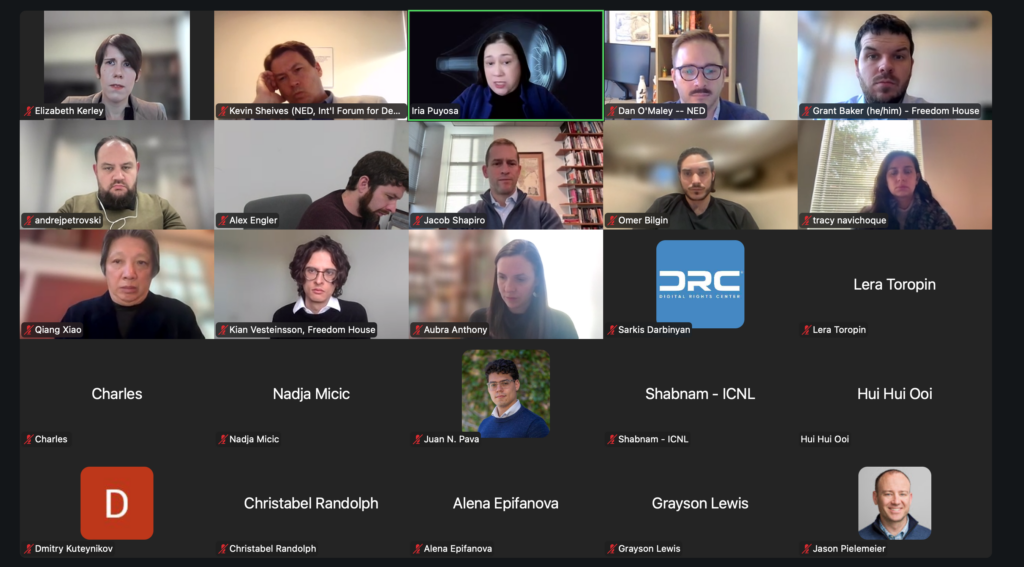The folllowing is an enhanced transcript of my comment at the following session of the International Institute of Communications 2016 Annual Conference.
Breakout C1: Tackling piracy and IP protection
- Which piracy ecosystems are the greatest threat in AsiaPac and further afield?
- Roles and responsibilities – regulators, cable / satellite operators, ISPs, advertising platforms, payment providers – what cooperative efforts are proving most effective in blocking access to pirated content?
- Debating the effectiveness of administrative enforcement options, including:
- imposition of fines
- suspension of business licenses
- What new initiatives have been launched in the region?
Chair:
John Medeiros, Chief Policy Officer, Cable & Satellite Broadcasting Association of Asia (CASBAA)
Sam Cai, Vice Director, Cyberlaw Center, Tencent Research Institute
Takamiki Nishikawa, Vice President and Senior Counsel, FOX Networks Group Japan
Heiko Zysk, Vice President Governmental Relations & Head of European Affairs, ProSiebenSat.1 Media SE
____________________________
Yes, Japanese contents are pirated, and so are German contents. It is not just Hollywood contents that are being pirated. There is strong reason for pirating non-Hollywood content. One of the reasons that piracy is rampant in Korea, other than high penetration rate is high, i.e., probably number two behind Japan, is the oligopolistic distribution channel which does not pay much attention to distributing non-Hollywood contents. 2 companies together own or operate 70% of film screens, and the same two companies invest and distribute in the bulk of films distributed in Korea (40-60% of Korean films). I believe OTT platforms are the future and will bring diversity to distributed content at reasonable prices, and will bring global availability of diverse contents. Bundling should not be deemed categoricaly bad because that is what OTT plaforms are doing.
Another reason for the trend in Korea is ironically Draconian criminalization of copyright infringement. It is making everybody criminals, turning everybody into the enemies of the copyrightholders. In Korea, 30-40K criminal complaints are being filed, and 2-3,000 indictments a year are being brought. Because rightholders can bring harsh pressure onto copiers, using the free services of prosecutors, there is a market for it now. Many of the 30-40 K criminal complaints are being brought not for bona fide compensation for the profits lost but just to scare the users into paying settlement monies, which are often much bigger than what the rightsholders would have made through royalties. Take the case of 3 novelists, who uploaded their own novels in a Zip file on Torren, and filed criminal complaints against everybody who downloaded that Zip file, which came out to be more than 10 k people. In 2015, out of 30K criminal complaints, theirs covered more than one third! Due to their profitability, many “successful” threats of criminal prosecution are made against frivolous infringements, and sometimes against non-infringing fair uses, because the users do not have resources to make the fair uses defenses against the prosecutors.
So, you wonder why punishing copyright infringement generates more infringement. Anyone who believes that a iron boot approach works when it comes to private crimes should think about prostitution. Korea and Thailand are two countries that moral condemnation of prostitution is so clear that even sex workers are defined as criminals. So, is there less prostitution in these countries? No. There is more, more than neighboring countries that allow some exceptions and some rooms for sex work. Making copies, selling your own bodies, it is impossible to stamp out. Instead of making them criminals, we have bring them out in the open and have serious conversation and education them. You heard about the broken window effect. It applies not just to environment but people as well. If you characterize someone as a criminal, he or she will act like criminals. Once you brand them, they will become the enemies of copyright, instead of trying to learn about fair use, trying to learn about the realities of media industry. Also, harsh criminalization earns bad names for rightsholders. There is one high school student who committed suicide when confronted with a threat of criminal prosecution for downloading some infringing files, and a succeeding demand of hugh amount of settlement money that he could never dare to talk to his poor parents about. Criminalization is turing us vs. them mentalities.
Here is a clear case showing the polarization of copyright discourse in Korea. A famous singer in Korea boasted on Twitter of having watched Taken 3, a Fox production, showing the screen capture, which lo and behold shows Arabic subtitles, when he does not speak Arabic. Everyone knew that he watched a pirated file. But, it was not really a violation because Korean copyright law on private copying exception is so outdated that any copying for private viewing purpose is permitted and there is no government-assessed fees like in other countries’ private copying exceptions. There is no such thing as illegal downloading as long as the downloaded file is for the eyes of the downloader him/herself or his/her families. Now, our organization Open Net stepped in to clear up the situation: that the singer did not violate any law, and also that Korean copyright law needs reform to protect content makers. It was a great opportunity to educate the public about the twin goals of compensating artists and promoting use of artistic products. But, it was so polarized that content makers and the users could not come to the table to discuss a mutually beneficial way forward. It was bad for the content makers because it was a perfect opportunity to propose updating the old private copying exception provision.
There is so much serious discussion and education needed on fair use because many people are being threatened with criminal enforcement just for uploading pictures on their blogs, and need for discussion on intermediary liability because Korea has general monitoring obligations on intermediaries, monitor for infringing activities. We should approach piracy in brand new ways.

0 Comments